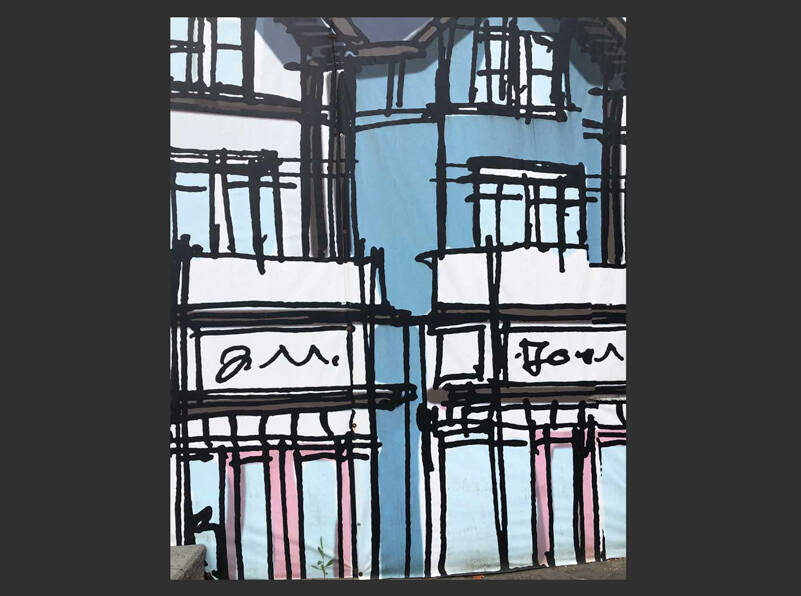By Morf Morford, Tacoma Daily Index
You might think that limited supply, record high prices and varying interest rates would be enough moving parts to keep the housing market in motion – if not unstable and unpredictable. But, as with every other aspect of our economy, even more volatile factors emerge that set the market askew.
What could be even more destabilizing than limited supply, high prices and interest rates changing by the day?
Meet the generation born around, or even since the year 2000. Gen Z, as they are known, have little memory of the foreclosure fiasco of 2008-09 and know one economic reality above all; real estate appreciates in value like nothing else. And, so far at least, this principle has served them (or at least most of them) well.
The pandemic years cut back or even eliminated many of the entry-level jobs young people traditionally held – as rents and home prices exploded. As did internet access to markets around the country (if not around the world) thanks to Zillow, Redfin and a variety of “off-market” real estate websites.
The generation right before them, millennials, came of age in the shadow of the Great Recession and the housing bust. And many of that generation lost their equity in the flood of foreclosures that swept across America.
In a 2020 survey, 87% of Gen Z respondents said they wanted to own a home in the future, while just 63% of millennials even considered that possibility. In that same survey, 68% of Gen Z viewed home ownership as a way to build wealth, compared with 60% of millennials.
Lessons learned?
Millennials learned some hard lessons in 2008-09; an economic downturn can swallow-up years of equity and investments.
Gen Z learned a very different lesson; real-estate values bounce back and keep going up.
And both generations are tilting the housing market. Millennials accounted for about 43% of all home purchases in the USA in 2021.
Gen Z, those born in 1997 or later, bought about 6% of homes in 2020, and about 10% in 2021.
And their market share is growing – and the average age of new home buyers is dropping. And, in some markets, home prices are also dropping.
The real estate market, perhaps even more than the job market is, above all, uneven.
Small towns, especially in isolated areas, are losing population – and experiencing real estate declines. These are prime areas for investment. Many of these towns offer incentives from low prices to cash bonuses.
Housing hacks
In the old days, as in the housing market before about 2008, a home was purchased by a family that lived in it. But that was then…
With the cost of housing now, many young buyers do live in their home – with others – to contribute to the monthly mortgage. Renting out rooms or garage space for everything from living spaces to workshops has become just another face of the housing market.
But you can invest in real estate without living there, or even seeing the place – crowd funding companies like Fundrise or Crowdstreet allow any of us to own a stake in a real-estate portfolio — and reap all the associated tax benefits — for as little as $10.
Fundrise, for example, has more than 225,000 Gen Z users on its platform.
And that might be as close as many of that generation come to home ownership. About 34% of Gen Z don’t think they’d ever be able to afford to buy a house of their own, up from 27% in 2019.
The biggest obstacles to saving for a down payment are all too familiar; student debt, minimal credit history, and unstable jobs and income.
In short,we have an ever-widening gap between those who can invest in real estate, and those who find it more out of reach every year. This gap grows even wider over decades – home ownership is the most common form of wealth building for most American households.
And for those who cannot buy a home, all those years of renting means fewer years of building equity.
In all too many cases, millennials had little choice – between 2010 and 2019, home builders started roughly 21,000 single-family homes per 1 million people each year, about half as much as they were building in each of the prior three decades.
As to home ownership, more than half of boomers owned a home by the age of 30, compared with 48% of Gen Xers and 42% of millennials.
And the boomers keep buying; the percentage of recent buyers who were 60 years and older grew 47% from 2009 to 2019. And roughly a third of home buyers (mostly boomers) paid with all cash.
Cash, of course, protects home buyers from the vagaries of pulsing interest rates. Few young buyers can pay in all (or mostly) cash – but many boomers can. And do.
How long boomers will be major players in the real estate market is anyone’s guess, but once they move on, the market will take on yet another entirely new texture.






